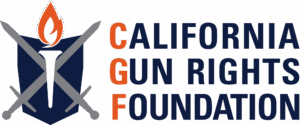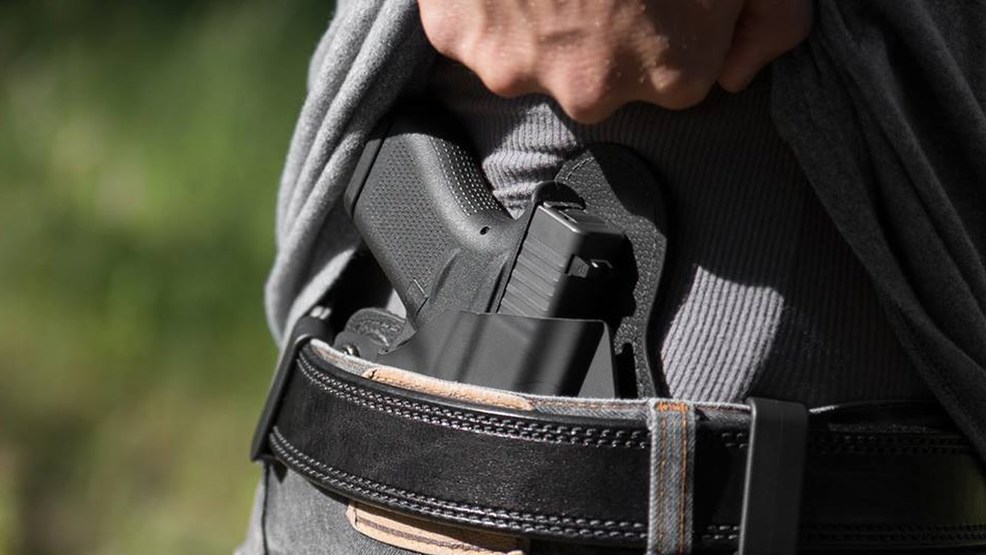Calguns Foundation, with our partner SAF, filed the first post-Heller “right to carry” lawsuit in the nation on May 5, 2009, 15 days after the first Nordyke v. King panel decision incorporated the Second Amendment. The case against the sheriffs of Sacramento and Yolo Counties was originally known as Sykes v. McGinness.
We moved quickly on carry after we read the Heller decision, as we found it surprisingly supportive of the right to bear arms. The board members, partners, and volunteers of CGF made the strategic decision to prioritize the right to carry as the next most critical step in securing the right to keep and bear arms. Incorporation felt like a foregone conclusion that would resolve in due course and thus the first Nordyke panel opinion gave us a chance to move more quickly on a carry case. Time was and remains of the essence due to the political realities of potential new Supreme Court Justice appointments.
We prioritized carry because it is most critical to the safety of our members and has the most potent ability to widen and strengthen the American investment in the right to arms. It’s one thing to argue about what you can or can’t do when you’re not currently doing it, it’s another for the government to try to take licenses away from those who have them and have gotten used to exercising them day to day. Many in the Second Amendment community thought we were rash or wrong to so quickly attempt to solidify the right to carry – so bold as to potentially take the most important social issue on immediately. But while reasonable people can disagree, we were confident that first, you can not win battles you do not fight, and second, criminals would raise these issues immediately regardless of what we did.
Lately, and for various reasons, some are criticizing CGF as “a failure” regarding the right to carry. We find that statement amusing and uninformed and hope to dispel some disinformation as well as educate everyone on what we’ve accomplished and where we’re all going.
The Nordyke opinion was vacated, taken en-banc and then stayed for McDonald v City of Chicago. The district court judge in Sykes stayed our case for Nordyke on September 1, 2009. We knew that meant that the case would be paused until at least late June 2010 as that’s when the opinion in McDonald would be issued. At the same time we were getting mixed messages from then Sheriff McGinness and Sacramento County counsel. Also, now that we had time, we wanted to add a recent license denial to our plaintiffs to avoid certain non-substantive arguments from the other side when the case resumed.
We asked two trusted volunteers to apply in late February 2010 using a good cause statement of “I wish to carry a firearm for self defense and the defense of my family.” Sheriff McGinness’ official policy that dated from 2007 and was still in effect in early 2010 stated, “[t]he mere fear of victimization, or desire to carry a firearm, shall be insufficient” “good cause” to issue a gun carry permit,” and that “[w]hat may be good cause in one area of the county may not be in another area.” Further, his policy required a one year minimum residency in Sacramento county before issuing a license.
On April 10, 2010 Sheriff McGinness updated his policy to remove some of the issues we had challenged in Sykes. The first of our volunteers (who were not very difficult for the Sheriff’s office to guess were related to CGF and that was part of our intent) received his carry license in the first week of May, 2010. We then sent another wave of volunteers through and they promptly received their carry licenses as well.
On June 28, 2010, the McDonald decision was issued that incorporated the fundamental right to keep and bear arms.
Settlement discussions began the month after McDonald with Sacramento and we quietly spread the word to Ms. Sykes, the other Sacramento plaintiffs, and additional volunteers and members to go ahead and get their carry licenses.
However, we had some specific required changes to their policy document before we would allow Sacramento County out of the case. On approximately October 18, 2010, the policy document posted online was changed to have the following negotiated language at the top of it: “[s]elf-defense may be considered good cause for the issuance of a permit, however, each application is unique and the Sheriff retains the ability to deny permit applications where it appears that doing so is in the interest of public safety.” That language remains at the top of Sacramento County’s policy document to this day.
On October 22, 2010, we filed a motion to amend our complaint and said this about our agreement with Sacramento County:
The Court ordered that this action be held in abeyance for sixty days following the Supreme Court’s decision in McDonald v. City of Chicago, 130 S. Ct. 3020 (2010), which was handed down on June 28, 2010. During this period, Plaintiffs and Defendants Sacramento County and McGinness were able to resolve their dispute. An appropriate stipulation of dismissal covering the dispute with the Sacramento defendants is filed separately.
From that time forward our case was restyled Richards v. Prieto and continued against Yolo County and the Yolo County Sheriff.
While settlement conversations were underway we had our volunteers reach out and address some of Sacramento’s other, more tactical policy issues, including a vestigial requirement that limited licensed carry within 1000′ of a school. By letter on October 5, 2010, that policy was removed from existing and new licenses. We also had volunteers communicating with both leading sheriff candidates to make sure they would honor the agreement we had made with Sheriff McGinnis.
On November 2, 2010, Scott Jones was elected the new sheriff of Sacramento County.
Since then, Sacramento County has been issuing about 1100 new licenses per year to all residents throughout Sacramento County.

California Gun Rights Foundation Condemns Governor Newsom’s Signing of Four Unconstitutional Gun Control Bills
FOR IMMEDIATE RELEASE California Gun Rights Foundation Condemns Governor Newsom’s Signing of Four Unconstitutional Gun Control Bills SACRAMENTO, CA —


